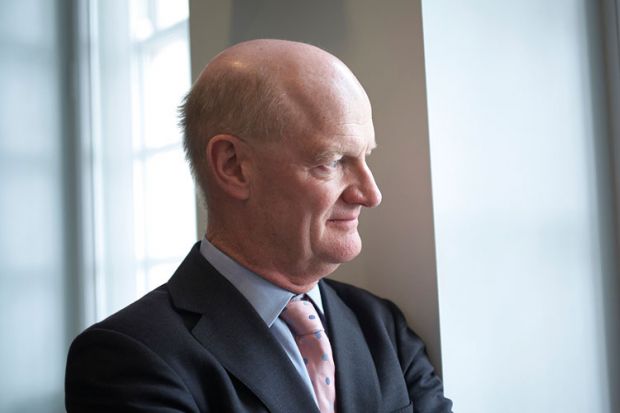Potential reforms to England’s student funding system trailed ahead of the announcement of the government’s higher education review could be politically disastrous if they are put in effect, former universities minister Lord Willetts has warned.
Speaking at an Education Policy Institute conference in London on 21 March, Lord Willetts explained that many of the changes to student funding suggested by ministers as Theresa May launched a review of post-18 education funding last month were either politically naive, confused or unworkable.
In a speech at the British Academy, which was attended by the review’s chair, Philip Augar, Lord Willetts said the idea of differential tuition fees floated by education secretary Damian Hinds lacked a “coherent framework”.
It was unclear whether its advocates wanted arts degrees to be cheaper than science degrees to reflect the lower earnings of graduates, for instance, or more expensive to divert students into other disciplines, said Lord Willetts, who was universities and science minister from 2010 to 2014.
The idea that “good universities should charge more”, proposed by some within the sector, was also unwise as it would represent a “reversal of the pupil premium” found in schools, as students from richer backgrounds would enjoy better resourced degrees than poorer students, said Lord Willetts.
He also criticised the possibility of introducing a graduate tax, saying it would create a “brain drain problem” by introducing a “rationale for the high-earning UK elite to leave [the country]”.
Proposals to “rebalance” tertiary education funding in favour of further education by cutting back support for universities – as proposed by Baroness Wolf of Dulwich, a member of the Augar review – would carry substantial political risks, Lord Willetts added.
“The idea that it is a brilliant solution to reduce the unit of resource to 1.5 million first-time voters is not a good idea,” said Lord Willetts, who added that “it is not going to happen”.
He also voiced scepticism about the political benefit of increasing the threshold at which graduates begin repaying their student loans to £25,000 – a move announced by Theresa May at the Conservative Party conference in October.
The policy, which is estimated to cost £2.3 billion a year, would not win many votes, Lord Willetts suggested.
“I sometimes ask some of my former colleagues still in public office if they have ever had a graduate come to a constituency surgery complaining about it – I never had one,” said Lord Willetts, who stepped down as an MP in 2015. “It is not a powerful grievance,” he added.
Lord Willetts said he was surprised by the apparent drive to expand the number of two-year undergraduate degrees, saying that “quite a lot of students wish to have four years [as undergraduates] because they find it the most intellectually stimulating part of their education and want it to be longer”.
English students, said Lord Willetts, “start too soon, specialise too soon and…get into the labour market earlier than anywhere else”, adding that “a proper debate would be how to finance a broader, longer and slower” university education.




